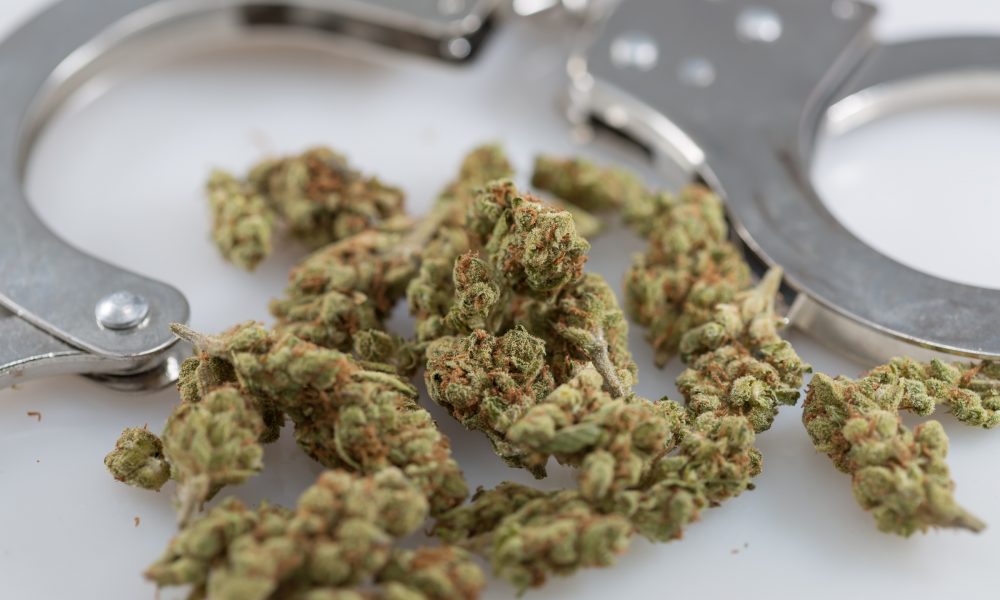“This type of thoughtful and restorative relief is consistent with your support of historic and meaningful smart justice reform efforts.”
By Aaron Sanderford, Nebraska Examiner
A refreshed Nebraska Pardons Board meets for the first time Thursday, adding a first-year governor and attorney general to a three-person panel that returns the secretary of state.
The board, which has the state’s power to set aside criminal convictions and consequences, will consider the commutations of three criminal sentences, the pardons of 51 people and restoring the driver’s licenses of three people.
But three state senators who worked this spring with Gov. Jim Pillen (R) and Attorney General Mike Hilgers (R) on criminal justice reforms just asked the board to mull a structural change.
A simpler process for pardons
They asked the Pardons Board to consider creating a process that encourages and expedites commutations and pardons for Nebraskans convicted of basic marijuana possession—a move that would make it easier for some to secure work and housing.
In a letter to the board this week, State Sens. Danielle Conrad (D) of Lincoln, Terrell McKinney (D) of Omaha and Justin Wayne (D) of Omaha pressed the board to rethink second chances.
The senators urged the governor and the board to develop “an administrative process to encourage eligible people to seek pardons for simple marijuana possession convictions.”
“This type of thoughtful and restorative relief is consistent with your support of historic and meaningful smart justice reform efforts, such as LB 50 just this past session,” it says.
Senators say more can be done
Conrad, who delivered the letter to the governor’s office on Tuesday, said the Pardons Board can do more than it did under the previous regimes to help people.
One of the questions she would like answered: Can the pardons process be streamlined enough that people with simple possession convictions might not need a lawyer?
Nebraska needs workers, she said this week, and a state that needs workers should make it easier for people to secure a job when they’ve paid their debt to society.
“We’ve been able to find a lot of common ground with Governor Pillen and Mike Hilgers on second chances in criminal justice reform,” she said. “I think we can do it again.”
Federal push
Conrad, McKinney and Wayne, in the letter, point to a 2022 federal executive order on marijuana possession as an example of how to ease the personal costs of marijuana convictions.
That order by President Joe Biden pardoned people with prior convictions for simple marijuana possession with the stated aim of keeping those convictions from costing them access to jobs, housing and chances for education and training.
Biden called on governors and states to follow suit. Then-Gov. Pete Ricketts (R) and then-Attorney General Doug Peterson (R) criticized his pardons as the “wrong direction.”
Possession of more than an ounce of marijuana in Nebraska is a misdemeanor punishable by up to 3 months behind bars and a fine of up to $500.
The state had no immediately available statistics on how many people have simple marijuana convictions as part of their criminal record.
State and local purpose
McKinney, who has pressed to legalize marijuana and expunge criminal records related to simple possession, said the push for fairer handling is national and nonpartisan.
“Many people are starting to see the way we have been doing things as far as criminal justice policies and people coming back into society has negatively affected people and hasn’t worked,” he said. “It’s not about your political ideology. It’s about your humanity as a whole.”
McKinney said he hears from constituents all the time still haunted by something they did when they were 18 or 19.
Every time a person with a criminal history applies for a job, applies for housing or even applies to cut hair they feel the weight of people discovering their past, he said.
Some employers won’t advance people with criminal convictions to the interview stage, no matter how minor. Some landlords refuse people with criminal records. And some occupational licensing processes require clean records.
“It can be discouraging,” McKinney said. “It doesn’t matter how long ago it was. It’s still like, ‘Dang, that was 20 years ago…and I’m applying for a house and I still have to answer this question.’”
The road ahead
Conrad said she hopes to work with the administration and her legislative colleagues to drill down into the numbers of people who might be affected if the governor is willing.
Pillen’s office said he was reviewing the letter. Hilgers’ office said the attorney general had received it. Secretary of State Bob Evnen (R) serves on the panel as well.
Conrad and McKinney said they hope they look at the red and blue states addressing drug possession in a more reasonable, rational way and act.
“It’s being smart and trying to do the right thing to make the system work better for everybody,” McKinney said. “It’s not about your political ideology. It’s about your humanity.”
This story was first published by Nebraska Examiner.
New Hampshire Lawmakers Reach Deal On Creating Marijuana Commission To Formulate State-Run Sales Model
Read the full article here









